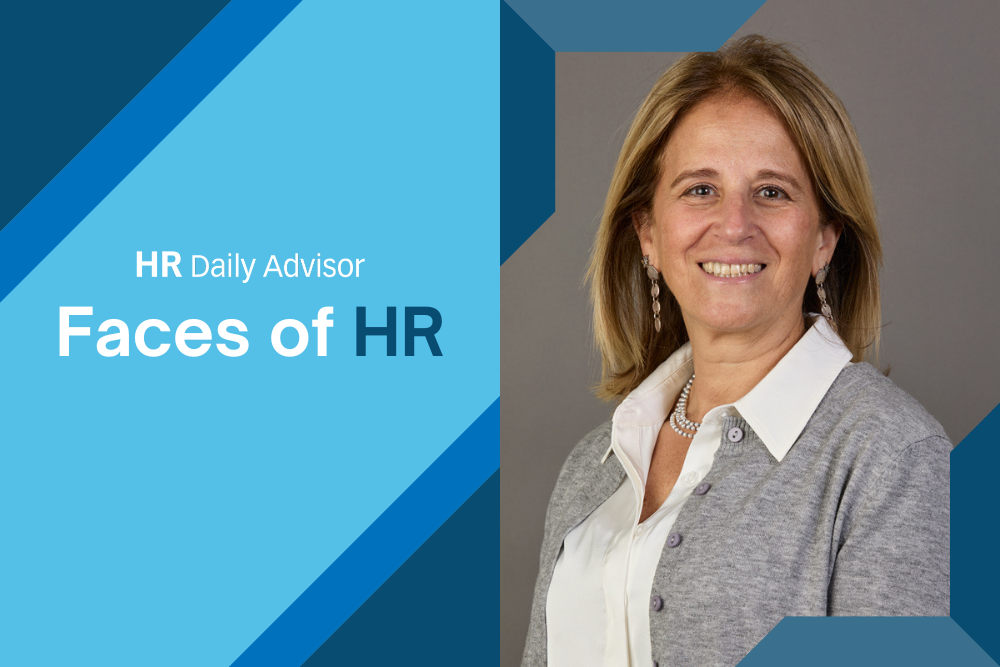Jennifer Krevitt has stepped into the role of Chief Human Resources Officer at Hightower Advisors, where she is tasked with leading enterprise-wide talent strategy, leadership development, and organizational transformation across the firm’s corporate team and advisor practices nationwide.
Krevitt brings a powerful blend of legal acumen and global financial services expertise to the role. After 25 years in leadership roles at Goldman Sachs, she recently spent a year running a private consulting business, counseling senior leaders on organizational strategy, and two years at Invesco Ltd.
As Senior Managing Director and CHRO at the global asset manager, and a member of Invesco’s Executive Leadership Team, Krevitt was instrumental in developing and driving the firm’s strategic priorities across its vast global platform.
From Math to Master Strategist
So, how did a powerhouse CHRO get her start? It wasn’t the typical HR route.
“I was an Economics major with a minor in Mathematics at the University of Pennsylvania,” she shares. Her first role was in the financial services world at what was then Chemical Bank (now part of Chase). While she loved the complexity of the industry, she felt something was missing.
“I wanted to build a strong career foundation—one based on deep subject matter expertise, analytic acumen, and contributing meaningfully with an important focus on people.”
This realization led to a transformative decision: law school at the University of Pennsylvania Carey Law School.
“Law school sharpened my thinking and deepened my commitment to understanding people and systems,” Krevitt explains. After practicing law for about five years, she found her true passion was working within a corporate environment, serving employees and clients directly. This journey led her to a pivotal move into Human Resources at Goldman Sachs, where her unique strategic foundation could fully take root.
In our latest Faces, meet Jennifer Krevitt.
Who is/was your biggest influence in the industry?
Over the years, being part of executive leadership teams at both Goldman Sachs and Invesco has shaped how I think about people, systems, and outcomes. While I have worked with many talented and inspirational leaders, my greatest influence has been proximity to the business– staying close to the business, asking questions, doing the analysis, reading the room, listening closely, speaking clearly and building trust. That’s how I’ve grown—by staying curious and invested in the strategy and goals of the organization.
What’s your favorite part about working in the industry? What’s your least favorite part, and how would you change it?
Human resources, or human capital management, is a control function and an accelerating function. Effective HR plays four critical roles in an organization – protecting the firm, powering strategy, unlocking talent, and speaking up when others can’t or won’t. I love that HR is at the intersection of talent and strategy. The ability to help an organization run better by helping people thrive is energizing. My least favorite part? When HR isn’t held to the same strategic standard as other functions. Changing that starts with execution excellence. It is table stakes. It is what earns you a seat at the table.
It sounds like through your experience you really care about people, and you want to help them feel safe and comfortable, which is important in the industry. Please elaborate here.
Execution excellence begins with discipline—driven by data, analysis, and insight. Culture needs structure and the best decisions are rooted in evidence. Rigor alone does not move an organization forward; relationships do. Connections create understanding, understanding builds trust, and trust is where momentum thrives. Accountability, impact, and excellence enable organizations to excel when trust is present, when organizations understand that we are all working toward the same goals, and when teamwork is valued. Creating a workplace where people feel heard and respected is not just important—it’s essential to performance and culture.
How can HR most effectively demonstrate its value to the leadership team?
HR must hold itself to the same standard of accountability, impact, and execution excellence. HR is a strategic function rooted in data-driven insights. Execution excellence is essential. The real work should speak for itself and should always be anchored in protecting the firm, driving the strategy of the organization, unlocking talent, and ensuring operational excellence. Precision, connection, trust, and courage are critical and must be anchored in data analytics and insight. The ability to translate insight into action—without over explaining or overselling—demonstrates value.
Do you have any advice for people entering the profession?
I believe in the concept of leadership at all levels. Each of us must stay close to the business. Understand the organization’s goals and strategy no matter your level or title. Let that be your compass. Do the analysis. Ask questions, then ask them again. Read the room. Listen closely. Speak clearly. Build trust. When you do, you will be the accelerating force you want to be and the organization needs you to be.


